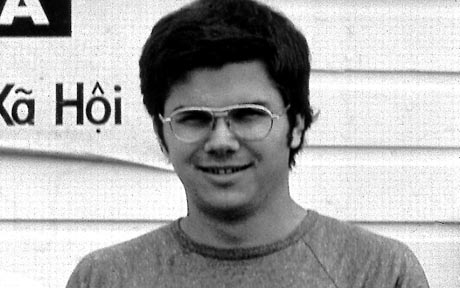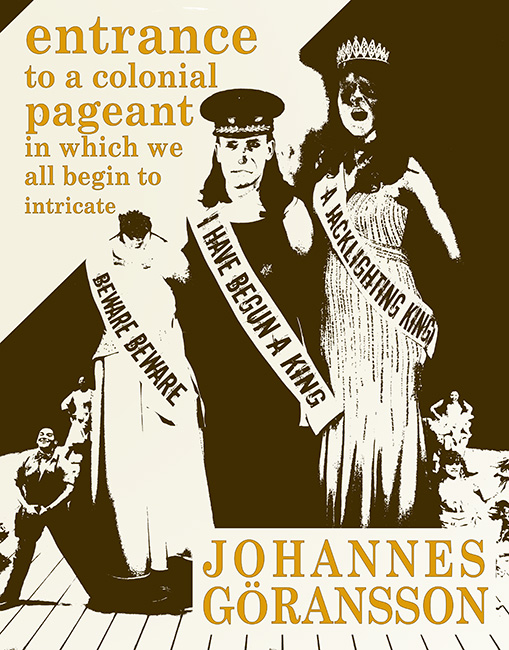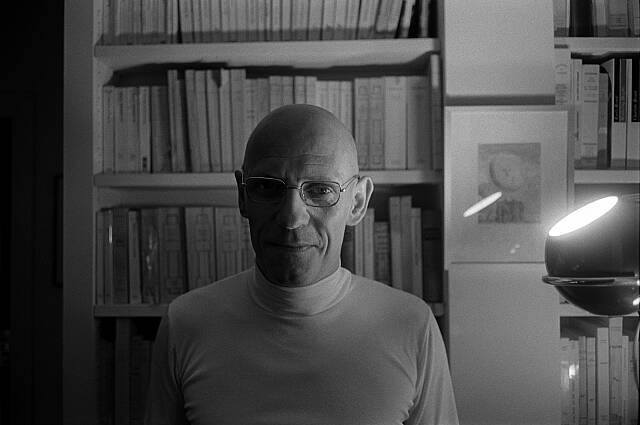Blake Butler
http://www.gillesdeleuzecommittedsuicideandsowilldrphil.com/
Blake Butler lives in Atlanta. His third book, There Is No Year, is forthcoming April 2011 from Harper Perennial.
http://www.gillesdeleuzecommittedsuicideandsowilldrphil.com/
Blake Butler lives in Atlanta. His third book, There Is No Year, is forthcoming April 2011 from Harper Perennial.
Today David Lynch is answering interview questions on his twitter feed: “When I go out, Kathy who cuts my hair has given me a spray, but I don’t know the name of it.” [Q stream found here.]

“I just shot John Lennon.”

I have no idea what's up here but I like it
1. Facebook extends my Xmas list each time I look at it, today: Skull with skull case [via Lincoln M.] & the Nieves catalog [via Molly B.].
2. The 8th issue of Harp & Altar is out.
3. Jon Cotner & Andy Fitch + Grace Krilanovich reading in LA at The Poetic Research Bureau this Saturday, December 11 @ 951 Chung King Rd in Chinatown!
4. 1993 Paris Review Interview w/ Fran Lebowitz: “I write so slowly that I could write in my own blood without hurting myself.”
5. Exciting news from Fence:
Fence Books is now a record label. We’re at work on audio-releases from Douglas Kearney, reading thrillingly from his book The Black Automaton, and Ariana Reines, with a guest-starring Lili Taylor performing Reines’ poem “Save the World,” plus a mysterious B-side, in anticipation of the 2011 publication of her book Mercury. Look for these in early 2011. And if you’re in NYC, don’t miss Ariana’s upcoming appearances.
6. Anyone see Black Swan? OK?
Supervert, apparently the pseudonym of an author creating “sexual pathologies,” who I’ve yet to fully look into his or herself, offers a digital archive of writings by Sade, Bataille, Benn, Baudelaire, more.
Ever go back and look at the things you wrote and submitted years ago and thought were great then and felt miffed or mad when they were rejected, and then realize with that time passed between, Hey, holy shit, this sucked, thank god nobody published this, I can’t believe I didn’t realize… ? So, maybe it’s not always the case, and maybe some editors’ tastes are too safe, or behind the curve, but maybe more often you could think of a rejection as a second chance, and say thanks for the protection.

An excerpt from Johannes Göransson’s forthcoming new book Entrance to a colonial pageant in which we all begin to intricate is live at Tarpaulin Sky’s Chronic Content feature. I’ve read this book a few times this year already; it is insane sickly gorgeous power. It is a big thing. Preorder here.

“My desire is that a book, at least for the person who wrote it, should be nothing other than the sentences of which it is made; that it should not be doubled by that first simulacrum of itself which is a preface, whose intention is to lay down the law for all the simulacra which are to be formed in the future on its basis. My desire is that this object-event, almost imperceptible among so many others, should recopy, fragment, repeat, simulate and replicate itself, and finally disappear without the person who happened to produce it ever being able to claim the right to be its master, and impose what he wished to say, or say what he wanted it to be. In short, my desire is that a book should not create of its own accord that status of text to which teaching and criticism will all too probably reduce it, but that it should have the easy confidence to present itself as discourse: as both battle and weapon, strategy and shock, struggle and trophy or wound, conjuncture and vestige, strange meeting and repeatable scene.”
[from the preface to the 1972 edition of History of Madness]

This year saw the release of Amelia Gray’s second book, a collection of texts from FC2 called Museum of the Weird. More than a simple consolidation of stories into a single body, or even a creation of texts within the confines of one body and a strong mind, Museum of the Weird seems an object bent out of the mysterious and new, taking foreign objects, mysterious relations, freak peoples, and bringing them together in a wilding chorus of the strange and, holy shit, the entertaining, addictive. Last month I traded a bunch of emails with Amelia re: the new book, how she works, the function of belief, fate, trying, and just what the hell is with all the eating of the hair that shows up all throughout her writing.
* * *
B: Amelia, your prose has an interesting quality of being at once familiar and intuitive, while also at a seeming kind of remove: beyond just using objects and animals as active elements, there is at all times a feeling that you are way back in there somewhere, narrating your way your way rationally out of these intensely messed up, or as you say “weird,” prompts. Do you think your writing is a kind of emotional propaganda? Is all writing emotional propaganda?
A: The phrase “emotional propaganda” strikes me as redundant because any effective piece of rhetoric contains some emotional element. In propaganda and in writing there is an actor with an intent and an audience, a communicating element and a receiving element. Effective propaganda sets up a world in which only one outcome is possible in the same way that a great tragic story drives its characters towards an inescapable fate. So sure, in the way each genre stands as a completed product, writing is a kind of message propaganda that ultimately stands to aid or question a cause/idea/person. Fiction tends to attack or support ideas like love or trust or babies via scenes and characters, while war propaganda, for example–thinking of WWII posters here–attacks or supports a country or cause using ideas like love or trust or babies. There’s an emotional appeal in each, driven towards a point or points.
The biggest difference is that war propaganda or motivational speeches tend to get created with a message in mind beforehand, while fiction doesn’t have to be created in the same way (though it can be). When I write, I tend to start with a very basic idea or image (all these could be described as prompts, sure) and write my way out of it. Someone creating a political image might do the opposite–begin with a larger point and work to seek out its supporting evidence–but we end up in roughly the same place.
“Propaganda” doesn’t insinuate emptiness, nor does it have to suggest a singular message, nor does it have to be negative, but it does suggest that there’s ultimately a point to every message. Same with fiction or poetry or advertising or journalism: if a string of letters doesn’t make any words, the point might be that there’s no point, or there might be a different point, point is there’s a point.
B: Once you have your idea, say, babies, how do you go about “writing your way out of it”? How do you know when you are “out”?
A: In the story I wrote about babies called “Babies,” I started with an ordinary fear of accidental pregnancy and unwilling parents and put it into the context of an irrational fear, where the baby is immediately there and there’s no time to have serious conversations or hold a baby shower or make a doctor’s appointment. The ordinary fear combines with the irrational fear and sets off a rational string of events. Obviously the woman is going to want to clean everything up. The baby is hungry, there’s no food in the house. That’s a more comic story, things are lightly touched. I could have made it more about umbilical cord infections or traumatic blood loss or flesh ripping or whatever, but I wanted to keep the real bumping up against the unreal, babies floating inside balloons. At the end I felt the impulse to make it a happy story, where the relationship is saved and the individuals are improved, and then I felt the impulse to crush that impulse in as few words as possible, and then I felt I was out. I had the plot of that story down fast, so I remember the impulses shifting. That’s not how it always goes but it’s how it went then.
@twinnegganswake uses an iPhone spell check to autocorrect the text of Finnegans Wake, i.e. “my blue ribbon Cat, Perceval, just broke the Guinness record for eating the greatest number of hot dogs,four wieners and buns in 12 minutes!” [Via Christian Bok]